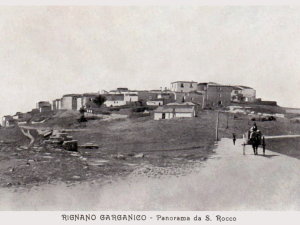Whats the deal with wine sneezes? Wine & Spirits Wine & Spirits
This knowledge can guide individuals in making informed decisions about alcohol consumption, especially if they have experienced adverse reactions in the past. Consulting with a healthcare professional is recommended if one frequently encounters symptoms of histamine intolerance. A study assessed the histamine levels in 17 beers, and the results ranged from 21 to 305 micrograms per litre.
New Study Finds That 1 Percent Of The Population Is Sensitive To Sulfites In Wine
Some people are super sensitive to all wines and get on better with another low-tannin alcohol such as gin, vodka, rum, or tequila. Look for wines with lower histamine levels, usually white wines, organic wines or sparkling wines. Some winemakers do choose to state their histamine content, particularly if it’s low. For example, Italian winemaker Peri Bigogno produces wines with a certified histamine content under 0.5 mg/L. A protein on the skin of a grape, mostly those in red wines, can contribute to symptoms in those who already have allergies, according to a German study. Ok, so now that we’ve answered the question – why does my nose get stuffy when I drink?
In the case of beer, people typically have a sensitivity or intolerance to one of its components, such as a basic ingredient, chemical, or preservative. The most common allergens in beer include grains, modified grain proteins, hops, yeast, molds, barleys, additives, and sulfites. In this article, we’ll explore why drinking alcohol commonly leads to a stuffed up nose for so many people. More importantly, you’ll discover actionable ways to stop alcohol from inflaming nasal passages so you can avoid the dreaded stuffy nose hangover. Whether you only have the occasional glass of wine at dinner or frequently enjoy late nights out, you’re sure to learn valuable tips to nip post-drinking nasal congestion in the bud.
An alcohol intolerance, or ingredients like histamines in alcohol cause an allergy-like reaction in drinkers, swelling the the mucosal membranes in the nasal passages and airways. Avoiding problematic ingredients or taking a supplement to reduce acetaldehyde buildup and intolerance symptoms can help prevent nasal congestion from drinking. Wine and other alcoholic beverages are generally not considered as potential allergens, so if you think you may have an allergy to wine, it is important to get a proper diagnosis. During the skin prick test, drops of wine are placed on the back of your forearm and the skin is pricked through the liquid.
Microplastics in Alcohol: A Hidden Risk for ALDH2 Deficient Drinkers
There are a few ways to manage and reduce histamine intolerance including avoiding high-histamine foods, taking dietary supplements like DAO enzyme capsules, and using antihistamine medications. It is important to talk to a doctor to get the proper diagnosis and treatment plan for histamine intolerance. The symptoms of alcohol intolerance usually occur immediately after drinking alcohol and can be intense. One of the primary symptoms is facial flushing, where the face quickly turns red and may feel warm due to increased blood flow. Alcohol intolerance can also cause a rapid onset of a throbbing headache or migraine.
Histamine intolerance is caused by a lack of an enzyme called diamine oxidase (DAO). This causes the body to be unable to break down and clear out excess histamines in the body. Tannins are astringent compounds that contribute to the bitter taste and aroma of wines. When these compounds come into contact with the nasal passages, they can create an irritation sensation which leads to a reflexive sneeze response. Alcohol itself can cause blood vessels to dilate, which can lead to swelling, nasal congestion, and excessive mucus drainage.
Histamine is a compound found in beer, wine, and spirits that can elicit an allergic response. However, the sneezing caused by drinking beer could also be due to an interaction between beer or alcohol and any medication you’re taking. It is important to determine whether you are allergic to a specific ingredient in the beer or if it is due to an interaction with medication. If you are experiencing any of these symptoms after consuming alcohol and you are unsure of the cause, it is recommended to raise your concerns with your doctor.
She has tried different types of alcohol — vodka, whiskey or tequila — but she breaks out in hives and a fever. After just a few “tiny sips,” thinking she will be fine, Brown said she ends up “going down the same dreadful path Jack Daniels led me down.” Dec. 24, 2012— — Kristin Brown loved to drink – perhaps partied a little too much when she was in her 20s, but when she hit her 30s, alcohol suddenly hit her the wrong way. We use a pharmacist-formulated blend of Glutathione, Dihydromyricetin, Cysteine, L-Theanine, & B Vitamins to stop alcohol flushing before it can begin.
Not that there are any scientific studies on the number of people who are affected, but, if you get the “beer sneezes” after you have had a beer (or, more than one beer), you are not alone. The online discussions sneezing while drunk on this phenomenon range from catching a closet drinker in the act to a life-threatening allergy situation (please, carry an epi-pen in this case). Some say it is more about the type of beer (too many hops) than a reaction to the alcohol in beer.
While this may sound like an allergic reaction, these types of reactions to wine or beer actually have more to do with your immune system. For example, red wine contains a much higher percentage of histamines when compared to white varieties, so choose wisely if wine sneezes are known to put a damper on your evening. Some people are sensitive to sulfites and can exhibit adverse reactions to sulfite residues in foods. Such reactions can include wheezing, coughing, chest tightness, and allergic rhinitis (hay fever).
Vasodilation Causes Stuffy Nose After Drinking, Too
Understanding the underlying cause of sneezing after drinking beer can help individuals manage their symptoms effectively. Beer contains histamines, which are produced by yeast and bacteria during the fermentation process. While true allergies to alcohol are rare, it is possible to have an allergy or sensitivity to specific ingredients in beer, such as grains, chemicals, or preservatives. These allergies or sensitivities can cause a range of symptoms, including sneezing, wheezing, hives, nausea, vomiting, diarrhea, abdominal pain, and in rare cases, even anaphylaxis. Drinking beer can indeed cause sneezing, a phenomenon sometimes referred to as beer sneezes.
The only way to prevent these reactions is to avoid alcohol or limit the amount consumed. It is also important to note that the “beer sneezes” are not a reliable indicator of intoxication levels, and drinking and driving can be dangerous. Histamine intolerance or sensitivity can make it difficult for the body to metabolize the histamines found in beer. Red wines typically have higher histamine content than other alcoholic beverages, but beer also contains histamines that can affect susceptible individuals. “Reactions to alcohol are unlikely to be caused by a ‘true’ allergy,” explains Holly Shaw, Nurse Advisor at Allergy UK.
Additionally, the phenolic compounds found in red wine can cause further irritation and worsen the condition. If you do choose to consume red wine, make sure to do so in moderation and avoid consuming too much. Additionally, adding foods with anti-inflammatory properties to your diet can help reduce any irritation caused by red wine consumption. Grape is the main allergen found in wine, and it is present in both red and white wines. Botrytis cinerea is a mold that causes noble rot in wine, which can also cause reactions in some people.
What are the possible causes of alcohol allergy?
- When it comes to how alcohol impacts asthma, the conclusions are less set-in stone.
- Some winemakers do choose to state their histamine content, particularly if it’s low.
- He adds that the chances of having an adverse reaction to those foods or drinks is one out of every hundred.
- However, it is important to choose non-drowsy antihistamines, especially if planning to continue daily activities.
These chemicals cause inflammation in the mucous membranes of your nose and sinuses, leading to congestion and a stuffy feeling. Additionally, when you consume alcoholic beverages, your blood vessels widen and cause more blood to flow to the nasal tissues, leading to additional swelling. If you experience mild symptoms, you may have a food sensitivity or intolerance rather than a true allergy.
Can You Be Allergic To Just Red Wine?
Additionally, if you have a family history of alcohol intolerance or have experienced uncomfortable symptoms after consuming alcohol before, it may be wise to avoid drinking altogether. Dilated blood vessels can cause inflammation and swelling in the nasal passages. In some people, drinking alcohol may also trigger an allergic reaction, which can cause sneezing and other symptoms. Research shows that around 8% of people experience symptoms like nasal congestion, flushed skin, or even headaches while drinking wine.
One of the most common alcohol-related allergic reactions is to wines containing sulfites. Sulfites are used as a preservative in wine and other alcoholic beverages, but can lead to an adverse reaction in some people. Symptoms of this kind of allergy include sneezing, itching, hives and difficulty breathing. If you experience any of these reactions after drinking red wine, it could be a sign that you are intolerant or allergic to alcohol. It is important to consult with your doctor for an accurate diagnosis and appropriate treatment. Your doctor may recommend avoiding foods and beverages containing alcohol, taking medication before consuming alcoholic drinks, or other treatments depending on the cause of your symptoms.
This will help to soothe the mucous membranes in your nose and prevent them from swelling and triggering a sneeze. In addition, beer is often brewed with hops, comprising a compound called lupulin. When you drink alcohol, it’s absorbed into your bloodstream and quickly travels to your brain. One is that alcohol dilates blood vessels in the nose, which can cause irritation and lead to sneezing.
Il sito è gestito dal Circolo Culturale Giulio Ricci e ripropone i contenuti dell’archivio del Fondo Tonino Del Vecchio.










Commento all'articolo